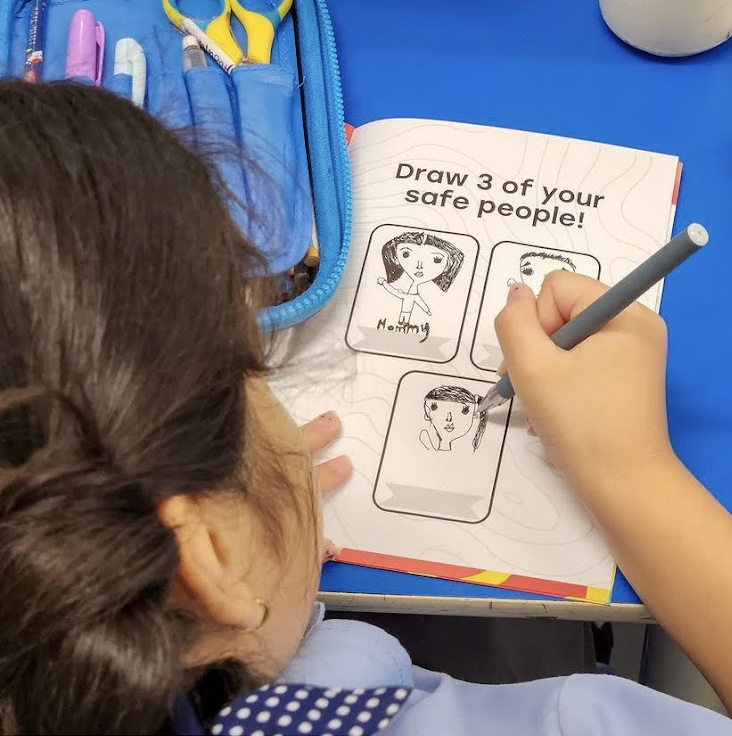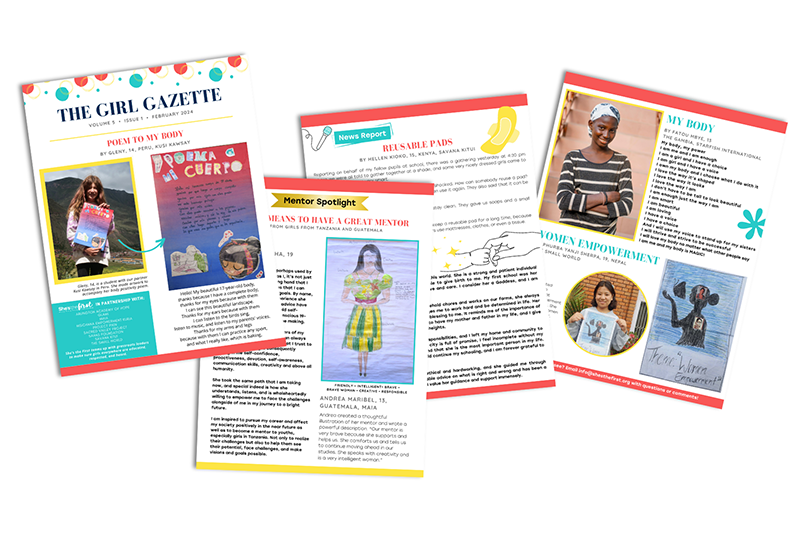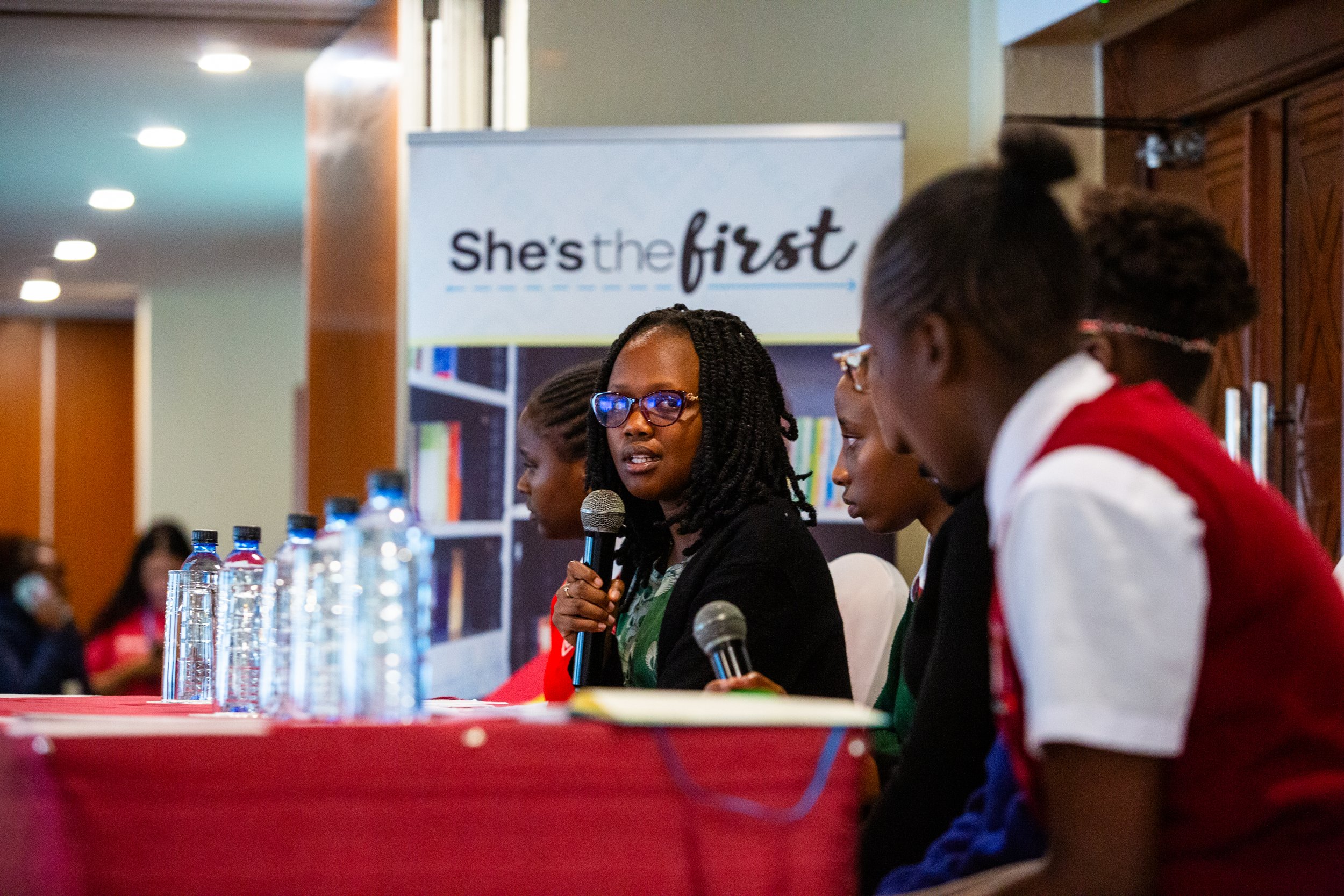Elsie and Areesha are university students and members of our Board of Directors! We asked them about their experiences and advice for other girls in leadership positions.
Coming Back to Life: How I Started to Emotionally Heal After A Sexual Assault
Editor’s Note: Trigger Warning: sexual assault and suicidal ideation. Olwethu wrote to us because she wanted to share her experience of healing after trauma. She hopes that by sharing her story, other survivors will no longer feel alone. If you have experienced sexual assault, there are resources to help you.
What Girls Have to Say about Girls' Rights in Afghanistan
The Unexplored Potential of African Youth
Reflections on Being "Sponsored"
She’s the First has always funded local organizations and trusted their expertise, but we have made significant adaptations to shift more power to them. In 2017, we moved away from our traditional scholarship (or sponsorship) fundraising model, in which donors were matched 1:1 with a girl they supported.
How the Girls' Bill of Rights Lives On -- One Year Later
Author: Vishaka Agrawal
Contributors: Faith Nwando, Genevieve (Jenny) Niwenambaza, & Claris Nadini
Around the world, having explicit documentation of major policies and laws help ensure consent and set expectations. So having the Global Girls’ Bill of Rights officially documented makes us feel more empowered than ever.
The bill, which was passed at the United Nations HQ and with UN Women in October 2019 on the International Day of the Girl, was co-organized by She’s the First, Akili Dada in Kenya, and MAIA Impact in Guatemala, and it can be used as a reference by any girl around the world to demand their rights.
One year later, we still have a long way to go in terms of the implementations of the rights featured within smaller communities, but we feel extremely fortunate that we could take this very crucial step towards a fairer, more inclusive world. Throughout the experience, we met really inspiring girl advocates and had the opportunity to represent the voice of girls from more than 30 countries. Helping draft the bill and sharing ideas with panelists from 15 different communities (and across timezones) was a proud experience.
“The bill reaching governments of all countries will mean impact across more local communities where the majority of discrimination happens.”
The Global Girls’ Bill of Rights is the first step to ensure that girls are not denied their basic rights, and it is also a step towards achieving the potentially less obvious rights like the right to pursue STEM and representation in leadership roles. The bill reaching governments of all countries will mean impact across more local communities where the majority of discrimination happens.
We also request social media followers and influencers, global leaders, and students to help us widen our reach and amplify the impact of the bill, because it is easy to take for granted these rights when we are privileged and do not see the social problems that exist even in our own institutions.
Vishakha (left) and Faith (right) at the UN
Alongside myself, fellow girl activists Faith, Claris and Jenny were also part of the panel that worked on the wording of the bill and finalized the final ten rights. Faith and I were two of six girls to present the bill to the Deputy Secretary General of the United Nations. Later that day, we had an interview with NPR. The two of us also spoke at the annual She’s the First Summit, where I talked about inclusion in STEM (being a girl in computer science myself) and Faith introduced one of our guest speakers Isha Sesay who reported about the missing girls in Nigeria (especially with the issue being very close to Faith’s heart).
Since launching the bill, it has impacted our own engagement across our campuses. I came back to India after the event and started the first Women in Computing chapter of my college which now has more than 300 active members. This paper in Nature, a top-tier science journal shows that women are only rarely featured as the first or last author in leading journals, so now I organize research-themed events to facilitate discussions between faculty researchers and female students to expose them to the research community.
The right to education was the most important part of the bill for Faith. Where she lives in Maine, there is a large population of immigrants from Salmi and most kids are non-English speakers. Today, she regularly takes part in touring local high school students around, since the teachers face difficulties supporting the needs of all the students.
Moving forward, we want to make sure that every girl is aware that the Girls’ Bill of Rights was passed at a global level, in a way that supports their rights, so that they can demand it without any hesitation. No one should be denied these basic rights. Striving tirelessly towards a better, more inclusive world is a responsibility of every citizen.
About the author: Vishakha Agrawal is a Computer Science undergrad from India. She is passionate about empowering girls pursuing STEM, especially research in Computer Science. You can hear more from Vishakha on Twitter (vishakha__a) and on her LinkedIn (vishakha-a).
About the contributors:
Faith Nwando, originally from Nigeria, is a high school senior in NYC. She is an active member of her college communities and a fierce advocate of girls’ rights.
Genevieve (Jenny) Niwenambaza lives in Kigali, Rwanda. She is in her last year of university at Davis college, Akilah campus. She is 21 years old and a proud feminist. You can find her on Twitter (nizagenevieve) and on Instagram (jennygeniale).
Claris Nadini is a Mechanical Engineering student at Ashesi University. She is the Chair of Badili Zone Organization that upholds education in Mukuru Community in Kenya. Claris is passionate about extending educational opportunities and bringing positive change to political leadership in Kenya. Find her on Twitter (ClarisNadini) and on Instagram (clarisnadini).
How Girls in Uganda Are Facing COVID-19
Many girls worldwide are starting month six of school shutdowns, without concrete plans to return for the foreseeable future. She’s the First’s partners are vital sources of support for thousands of girls, ensuring that girls have basic necessities, protective personal equipment, and access to continuing education whenever possible.
Hear from three girls served by our partner Arlington Academy of Hope (AAH) in Uganda on how COVID-19 has shifted their educations and how AAH is stepping up to meet their needs as a community-based organization.
My name is Elizabeth N, and I’m a teenage student in Uganda. I stay with my mother who takes care of my siblings and me. I’d like to share a story with you about how I have been affected by COVID-19.
Previously when everything was normal, I used to go early to school and carry out my lessons like any other girl or student should. I was always able to have my two meals at school, breakfast and a nice lunch. I used to play with my friends and the teachers around me could always guide me on the best things to do.
But due to the outbreak of COVID-19, schools closed and now here I am, at home with my single mum. My mum has to do several small errands for other people like fetching firewood, digging in their gardens, grazing animals like cattle to support us at home. Sometimes, having a meal depends then on whether my mother has work to do during the day or not. Life has changed in this way, because when schools were running, I was always assured of having meals. The girls’ coordinator at AAH has made sure I can continue to receive meals, and I am so grateful for this.
Our school at AAH does provides us with weekly work to do about different educational topics, so we are always kept busy while at home. Many times, I face the challenge of being unable to read at night, because we do not have electricity or solar lights at home, so I make sure to utilize every free time I have during day. I really miss school, my teachers, friends and the care I get while schools are open and am excited to return!
Hello everyone! My name is Fridah, and my dream is to one day become a doctor.
I’m a senior student in my class, and pre-COVID-19, I was going to sit for my national exams this October. Now schools have been closed and I shall not be able to pursue these exams. This is painful, so painful to me coupled with the fact that I knew that I would be going to another class level next year.
At the moment however, I’m keeping myself busy by helping my mother sell in her small retail shop. Through this, we are able to raise some little money for our necessities. During my free time while at the shop, I get to revise my books so that I can always keep myself informed and updated so that even after this, I will be able to perform my best at school when they open. I believe nothing can stop me from achieving my goal!
My name is Salama. I am in the seventh class at the Arlington Academy of Hope. I love my school so much. I also love going to school because it is fun and enjoyable there.
During this lockdown, I have learned a new skill of mending. Whenever my slippers or clothes are ripped or broken, I can mend them on my own so I do not need to spend any money on this.
I encourage all other girls in my community to learn similar skills which can help them and also enable their families to save money, which could be spent on other needs instead of a task that can be easily done.
Your support of the COVID-19 Response Fund ensures community-based organizations like Arlington Academy of Hope and girls in Uganda can survive through this pandemic. Make a contribution now!














